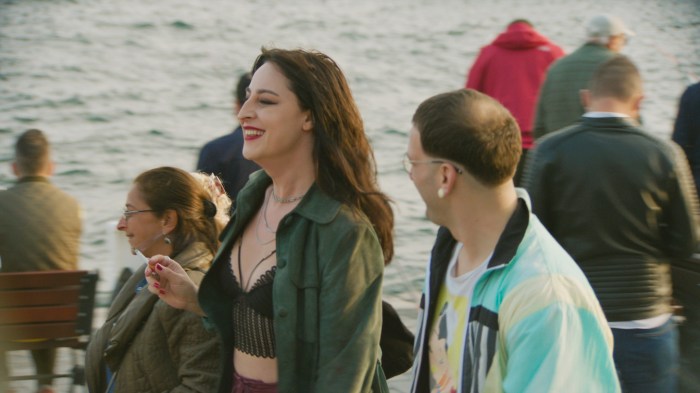BY STEVE ERICKSON | In 2007, cinephilia meant spending a lot of time in mourning, thanks to the deaths of Michelangelo Antonioni, Ingmar Bergman, Ousmane Sembene, and Edward Yang. Obituary proclamations of Bergman's irrelevance were answered at length in the blogosphere, but even if the director's reputation has fallen since the '60s, he lived a long life and made a vast oeuvre. Yang died in his 50s and only got to direct seven films. His fate seems emblematic of the current state of art cinema.
The baby-boomer arthouse has been romanticized beyond reason, but even without rose-colored glasses, it seems clear that for reasonably hip, well-educated young people from the '50s through the '70s, going to see foreign films was part of their common experience. That's no longer the case for contemporary college students, although “Little Miss Sunshine” and “An Inconvenient Truth – or, at best, TV shows like “The Sopranos” and “The Wire” – may occupy the place in our culture once held by Bergman.
Auteurs' deaths mirror a cinema tradition decline, but 2007 offered sparks of life.
Due to illness, Yang never got to cash in on the success of “Yi Yi,” his only film released in the US. Its $2 million gross suggested that he was never really as uncommercial as American distributors thought, but nevertheless, he was marginal even in his native Taiwan. Still, despite the cries of doom in so many Bergman and Antonioni obituaries, art cinema isn't dead.
I'm not sure that it's even in ill health. I doubt, however, that it will reach beyond a tiny niche audience in the US again. Shortly after Bergman and Antonioni's deaths, a traveling retrospective of Portuguese director Pedro Costa's singular films arrived in New York. While some are understandably divisive, why did it take six years for the relatively accessible documentary “Where Does Your Hidden Smile Lie?” to get a single screening here? Despite Costa's talent, his sole New York Film Festival exposure has been a short in the “Views From The Avant-Garde” sidebar this past year.
Even in the best of times, Costa's work would never play multiplexes, but he has the misfortune of working in a period where the notion of a film that needs to be seen twice to be appreciated is anathema.
This reviewer's assessment of the best 2007 offered follows.
1. SYNDROMES AND A CENTURY (Apichatpong Weerasethakul) What if a life could be remixed so that it echoes across time and space, altering other people's personalities? The gentlest of a handful of recent films by out gay directors to radically challenge the notion of individual identity, it's also the most sensual and immediately pleasurable.
2. DAY NIGHT DAY NIGHT (Julia Loktev) On paper, making an apolitical film about a suicide bomber seems like a foolish, if not impossible, idea. Amazingly, Loktev pulls it off. Without spelling out the cause that drives her anti-heroine, she comes up with plenty to say about the merits and perils of idealism – as well as a case for the merits of present-day Times Square.
3. REHEARSALS FOR RETIREMENT (Phil Solomon) An elegy for Solomon's late friend and collaborator Mark LaPore, this short draws all its imagery from the video game “Grand Theft Auto: San Andreas.” Surprisingly, Solomon managed to create a film so steeped in melancholy that one doesn't need to know its backstory to be moved by it.
4. COLOSSAL YOUTH (Pedro Costa) When I wrote about “Colossal Youth” here last February, I was rather ambivalent, but on a second viewing, it seemed much stronger. Costa combines the influences of classical Hollywood cinema, documentary, and painting in a way that resembles no other working filmmaker. If Andy Warhol's “Chelsea Girls” took place in a Lisbon slum, this is what it might look like.
5. I'M NOT THERE (Todd Haynes) A spiritual cousin to “Syndromes and a Century,” “I'm Not There” speaks up for the creativity of the trickster, even the poseur. Spilling Bob Dylan's life and music across racial and gender boundaries, it too suggests that every individual personality contains multitudes.
6. OFFSIDE (Jafar Panahi) With “Offside,” Panahi synthesizes the light touch of his debut, “The White Balloon,” with the feminism of his third film, “The Circle.” Many films have been made about the dilemmas of Iranian women; “Offside” is the first to protest the country's endemic misogyny and still suggest that being Iranian is something to celebrate.
7. GONE BABY GONE (Ben Affleck) No mere vanity project, “Gone Baby Gone” is the film Clint Eastwood tried and failed to make with “Mystic River.” A searing portrait of working-class Boston, it mixes neighborhood flavor with a powerful ethical dilemma. As an actor, also shown off to great effect in “The Assassination of Jesse James by the Coward Robert Ford,” Casey Affleck was this year's greatest revelation.
8. BLACK BOOK (Paul Verhoeven) An adolescent adventure story with a grown-up sense of moral gray areas, Verhoeven's World War II yarn served up his usual dose of provocation and sleaze but tempered its mean streak with an admiration for the strength and courage of the heroine at the center of it all.
9. THERE WILL BE BLOOD (Paul Thomas Anderson) Anderson started off his career with postmodern pastiches of film noir, Altman, and Scorsese, but this epic Western feels like it could have been made at any point in the past 50 years. Aided by Jonny Greenwood's dissonant score and Anderson's iconic framing, Daniel Day-Lewis embodies an anti-hero for the ages.
10. THE ASSASSINATION OF JESSE JAMES BY THE COWARD ROBERT FORD (Andrew Dominik) This year's second-best Western brings together the period in which it takes place, the '70s, and the world of Paris and Perez Hilton. Despite the evocations of Altman's “McCabe and Mrs. Miller” and other revisionist Westerns, it could hardly speak more clearly about our culture of dubious celebrities and their even more troubled fans.
Runners-up: “At Sea” (Peter Hutton), “Belle toujours” and “Magic Mirror” (Manoel de Oliveira), “Half Moon” (Bahman Ghobadi), “The Host” (Bong Joon-ho), “My Kid Could Paint That” (Amir Bar-Lev), “No End In Sight” (Charles Ferguson), “Triad Election” and “Exiled” (Johnnie To), “West of the Tracks” (Wang Bing).


































